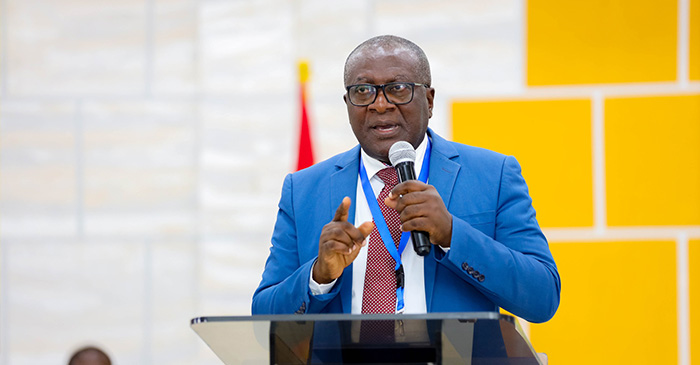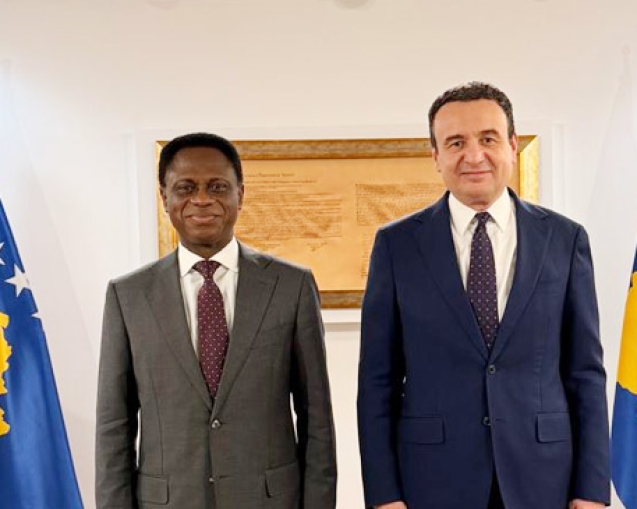The New Tafo Area Head of The Church of Pentecost, Prophet Samuel Tetteh Doku, has reaffirmed that the prophetic office is a divine calling given by God to equip the Church, stressing that prophets are not self-appointed but divinely raised vessels to communicate God’s mind and will to His people.
Prophet Doku said this on Thursday, June 19, 2025, during his presentation on “The Prophetic Ministry” at the 2025 National Prayer Centre Leaders’ Seminar, held at the Pentecost Convention Centre (PCC), Gomoa Fetteh.
Basing his message on Ephesians 4:11–13 and Hebrews 5:4, he emphasised that prophets are among the fivefold ministry gifts given to the Church for the purpose of building up the body of Christ until believers reach spiritual maturity. “No one can call himself to be a prophet,” he noted. “It is God who calls, appoints, and anoints prophets to serve His Church.”
Prophet Doku explained that in both the Old and New Testaments, prophets were designated as God’s messengers, chosen to deliver divine counsel to His people. “From Abraham to Samuel, the Bible records how God spoke through His prophets,” he said, citing Hebrews 1:1. “They were the Lord’s mouthpiece, receiving revelations, visions, and dreams to declare God’s mind to nations and individuals.”
In addressing “The Making of a Prophet,” Prophet Doku revealed that the journey into prophetic ministry is marked by divine refinement, not personal ambition. Drawing from Jeremiah 1:4–5, he explained that prophets are prepared even before birth, and undergo seasons of purification and character formation. “The prophet must first respond to God’s dealings in his own life before speaking into the lives of others,” he stated.
He identified three critical factors that shape the prophet’s formation: the dedication of godly parents, a heart of service, and a clear divine call. Using the example of the young Samuel, he highlighted how the servant-heart and mentorship relationship with Eli exposed him to divine encounters. “It was in the atmosphere of service that the voice of God came,” he said.
Prophet Doku further expounded that, under the New Covenant, the prophetic ministry continues—but within a new framework of direct access to God through Christ. While all believers now have access to God’s presence (1 Peter 2:9), the office of the prophet remains necessary for guiding, edifying, and equipping the Church. “The New Testament prophet must operate in line with Scripture, pointing people back to Christ,” he noted.
He also outlined “The Constitution of a Prophet” as the spiritual makeup and giftings that typically accompany the prophetic calling. These include the gifts of prophecy, word of knowledge, word of wisdom, discerning of spirits, teaching, exhortation, and even music. He cited the examples of prophets like Daniel, Elijah, and Jeremiah, who demonstrated multiple spiritual gifts, including the ability to discern, interpret visions, and teach God’s word with power and clarity.
“True prophets don’t just see,” he stressed. “They carry spiritual depth and character, and their lives must align with the message they preach.”
In concluding his presentation, Prophet Doku urged believers to test all prophetic utterances against the Word of God. He provided key questions for discernment: “Does the prophecy align with Scripture? Does the prophet’s life reflect biblical values? Does the message edify or confuse?”
He cautioned against blindly following prophetic manifestations without proper spiritual evaluation. “Not all that glitters is gold,” he warned. “Prophetic accuracy must be matched with biblical integrity.”
“God is still speaking today,” Prophet Doku concluded, “and He continues to raise prophets to speak His heart. But every prophetic voice must be anchored in Scripture and characterised by humility, truth, and holiness.”
PENT NEWS.


















